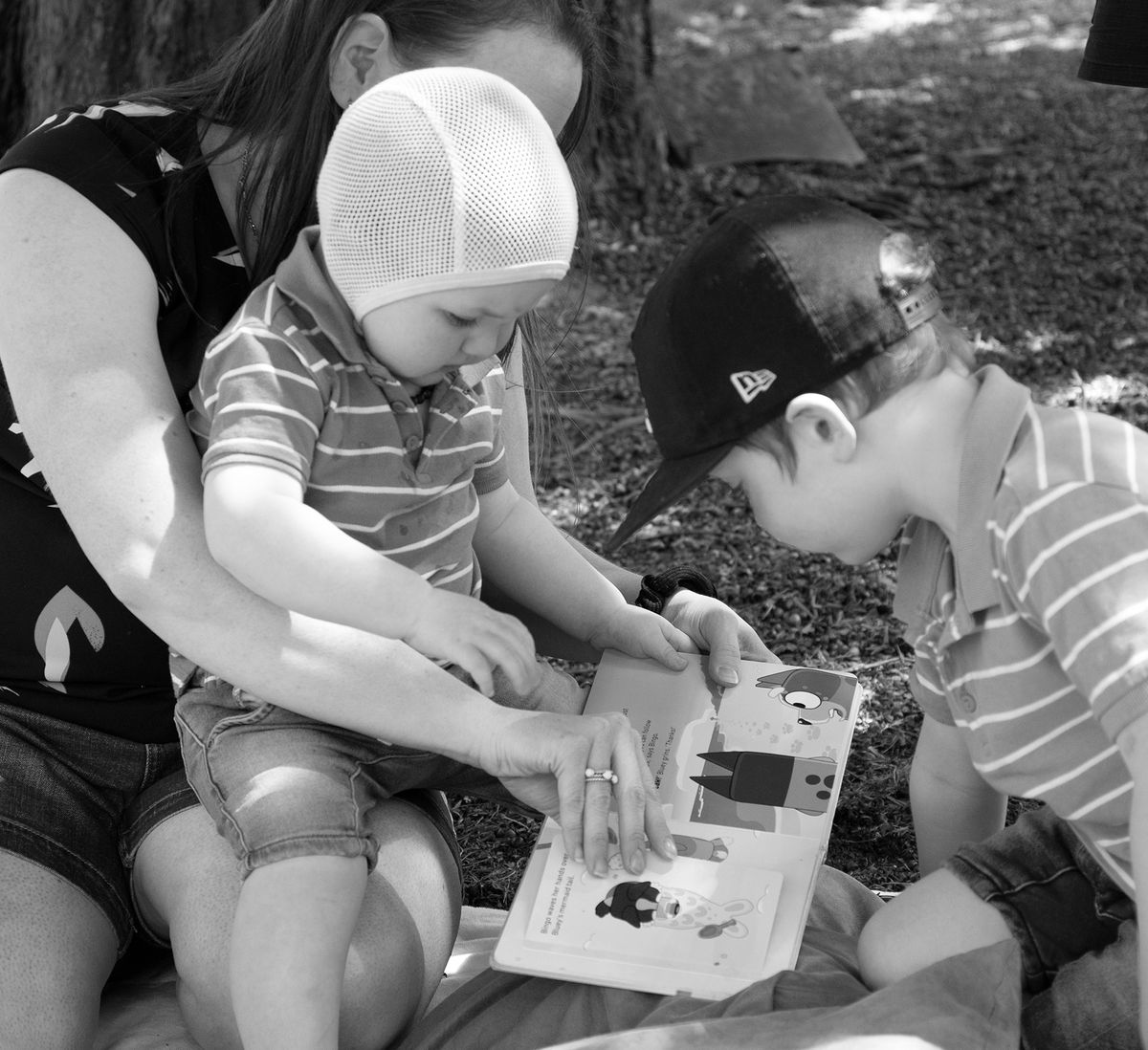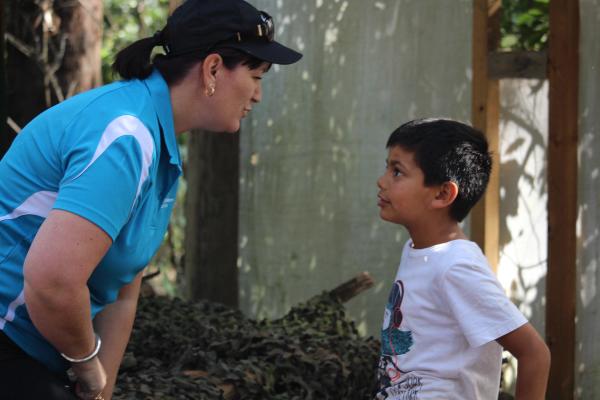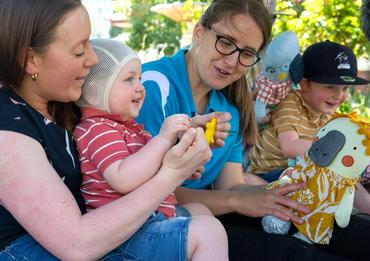Causes of deafness - a summary
If your child has been diagnosed with deafness, it’s understandable you’d like to know what caused it. The causes of hearing loss are divided into two categories – congenital and acquired.

Congenital hearing loss
A congenital condition is one that is present at birth or shortly afterwards. Congenital hearing loss can be related to genetics, or something that happens during pregnancy or soon after your baby’s birth.
Genetic causes
About half of all cases of hearing loss in babies are linked with genes inherited from one or both parents. Of these children, about 30 per cent have a syndrome, which means they’ll have other conditions or features along with the hearing loss. More than 400 syndromes involve hearing loss, most of which are quite rare.
Some of them include:
- Alport syndrome
- Brachio-oto-renal syndrome
- CHARGE syndrome
- Crouzon syndrome
- Down syndrome
- Jervell and Lange-Neilson syndrome
- Neurofibromatosis type 2 (NF2)
- Pendred syndrome
- Stickler syndrome
- Treacher Collins syndrome
- Usher syndrome
- Waardenburg syndrome
The other 70 per cent of children with genetic hearing loss don’t have a syndrome. Genetic hearing loss can be present from birth or start later.
Given that about nine in ten deaf children are born to hearing parents, it may seem strange so many cases are caused by genetics. The genetic change may have occurred further back in the family, or for the first time in your child. Most genetic causes of deafness affect the function of the inner ear and the way sound waves from the air are transformed into electrical signals that are sent to the brain and interpreted as sounds.

Non-genetic causes
In about another quarter of children who are deaf or hard of hearing, the cause is related to something else that happened during pregnancy or just after birth. Some examples include:
- an infection the mother experienced during pregnancy, such as rubella or cytomegalovirus (CMV)
- premature birth or low birth weight
- lack of oxygen at birth
- severe jaundice in a newborn
- some medications used to treat serious infections in young infants.
In the other 25 per cent, the cause of the hearing loss may be labelled as ‘idiopathic’ , which means it isn’t known.
Acquired hearing loss
Acquired hearing loss happens sometime after birth. There are many causes of acquired hearing loss, including:
- chronic ear infections
- infection with a disease such as measles, meningitis or mumps
- injury to the ear or head
- damage to the inner ear from exposure to an extreme noise (such as an explosion) or prolonged exposure to loud noises
- fluid collection in the ear (otitis media)
- use of some medicines
- some rare diseases
- wax or foreign bodies in the ear canal.
Glue ear is a common cause of hearing loss in young children. It occurs when the middle ear becomes filled with fluid, making it harder for sound to pass through to the inner ear. Glue ear is commonly linked with ear infections, although not always. It can lead to temporary deafness and delayed speech development in young children. When left untreated, it can affect their behaviour and learning.
It’s important that glue ear is identified as fast as possible so it can be treated. Always seek advice from your child’s GP if you have concerns about their health or wellbeing.

Finding the cause of your child’s hearing loss
A range of tests might be used to help determine the cause of your child’s deafness. It’s important to point out that the exact cause can’t always be found, although it can still be helpful to know what didn’t cause it.
Your doctor and other healthcare professionals will usually start by taking a medical history. This involves asking you questions about your pregnancy, any family history of hearing problems, and about your child’s development and general health.
Next, they will usually do a physical assessment, which involves looking at your child’s neck, head and face area, along with other parts of their body. This helps your doctor find any visible signs that could indicate the cause of your child’s hearing problem. They will also be looking to see whether your child is developing typically for their age.
Your doctor may also advise other tests, such as blood or urine tests, or imaging exams such as X-rays, CT scans, ultrasounds, and MRIs. This may include tests on areas other than their ears, to check whether the hearing problem is part of a syndrome. Genetic testing may also be recommended.
The results of these assessments give health professionals a better picture of what is happening with your child’s hearing and any other medical conditions that may be involved.
If a genetic cause is discovered, you should be offered the opportunity to have genetic counselling. This will give you and your family information about things like the cause of an inherited condition, how it could impact your child and family, the chances of having another child with the same condition, and the chances of your child passing the condition on to their children.
Handy hints and links
It’s important to remember that knowing the cause of your child’s hearing problem doesn’t usually affect how it’s managed. Ensuring your child learns to communicate effectively is what matters most.
Some children have a rare genetic hearing loss that can worsen if they take specific medications. A genetic test can identify whether your child has this gene. This information can help your doctor and family make decisions about treatment in the future. Your doctor may recommend this test is done early based on your child’s history.
Children who are deaf or hard of hearing depend on their eyesight more, and children with sensori-neural hearing loss are more likely to have a vision problem. For these reasons, all children diagnosed with hearing loss should have regular eye tests throughout childhood.
Some tests, such as infection screens, offer immediate benefit to your infant, so your doctor may recommend they are conducted early on. Other tests, such as genetic screens, don’t offer an immediate benefit, so they can usually be delayed. Your doctor can help you decide which tests should be done and when.
If you have any questions or concerns about any of the tests, don’t be afraid to discuss them with your doctor or other members of your child’s healthcare team.
If your child is suspected of having glue ear, they may be referred to an ear, nose and throat (ENT) specialist. They will check your child’s ears and may conduct a tympanometry test, which measures movement of the eardrum. This takes about a minute and gives results right away. They should also do a hearing test to see whether the glue ear is affecting your child’s hearing.
Links to other resources
Acquired hearing loss
These helpful links will help you learn more about some of the causes of acquired hearing loss:
Jaundice:
Infections:
Prematurity:
Injury/trauma:
Medicines:
Noise:
Conditions associated with hearing loss
These links provide more information about some of the conditions and syndromes associated with hearing loss.
Auditory neuropathy spectrum disorder:
Auditory Processing Disorder:
Cholesteatoma:
Ear infections:
Enlarged Vestibular Aqueducts:
Enlarged Vestibular Aqueducts and Childhood Hearing Loss
Large Vestibular Aqueduct Syndrome (LVAS)
Microtia:
Otosclerosis:
Pendred Syndrome:
Usher Syndrome:
Genetic counselling:
To find a genetic counsellor near you, visit the Human Genetics Society of Australasia’s Find a Genetic Counsellor webpage. This allows you to search for a genetic counsellor in all Australian states and territories, plus New Zealand and Southeast Asia.



